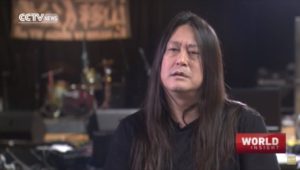 |
| Kaiser Kuo |
Cory Doctorow:
The short answer is "it's the economy, stupid." The dissolute rulers of pre-Revolutionary China governed badly, and between their wealth hoarding and colonial extraction by the British, China was a deeply unequal place whose political instability tipped over into revolution. But the post-Revolutionary Chinese catastrophes -- the Great Leap Forward, the Cultural Revolution -- left tens of millions dead and scarred the psyches of hundreds of millions of others.
The market reforms of the Deng era changed that, creating massive, sustained growth and (less unequal, but still imperfectly distributed) prosperity. The result is a kind of bargain between the authoritarian technocrats of the Chinese state and its people: "let us govern as we wish, and we will keep chaos at bay and sustain the growth that is lifting you out of poverty." As Kuo notes, this is the opposite of the American doctrine of Benjamin Franklin: "Anyone who would trade a little freedom for a little personal safety deserves neither freedom nor safety."
This explains why anti-corruption programs are so popular (and why corruption scandals are so politically consequential), even if they hint at the political purges of the Cultural Revolution; it explains why Chinese censorship is so focused on social order and preventing online dissent from erupting into physical manifestations of political anger.
As China's political star rises and rises on the world stage, many western thinkers are looking to the Chinese people to demand a more pluralistic, participatory state with respect for human rights and democratic fundamentals. Kuo explains why so many people in China are indifferent to this proposition (though Hong Kong is a different story!).More in BoingBoing.
Kaiser Kuo is a speaker at the China Speakers Bureau. Do you need him at your meeting or conference? Do get in touch or fill in our speakers' request form.
Are you looking for more strategic experts at the China Speakers Bureau? Do check out this list.
No comments:
Post a Comment